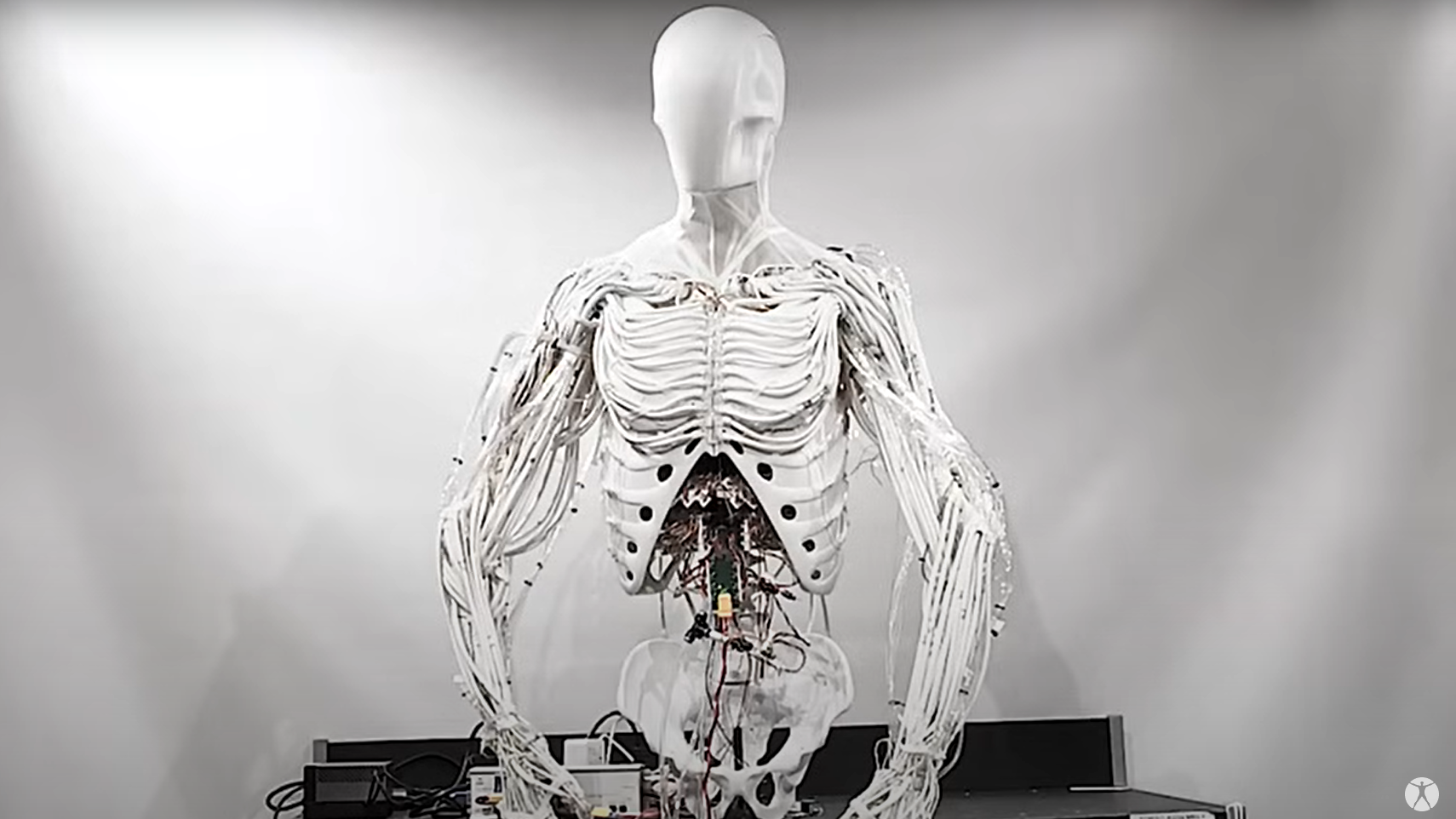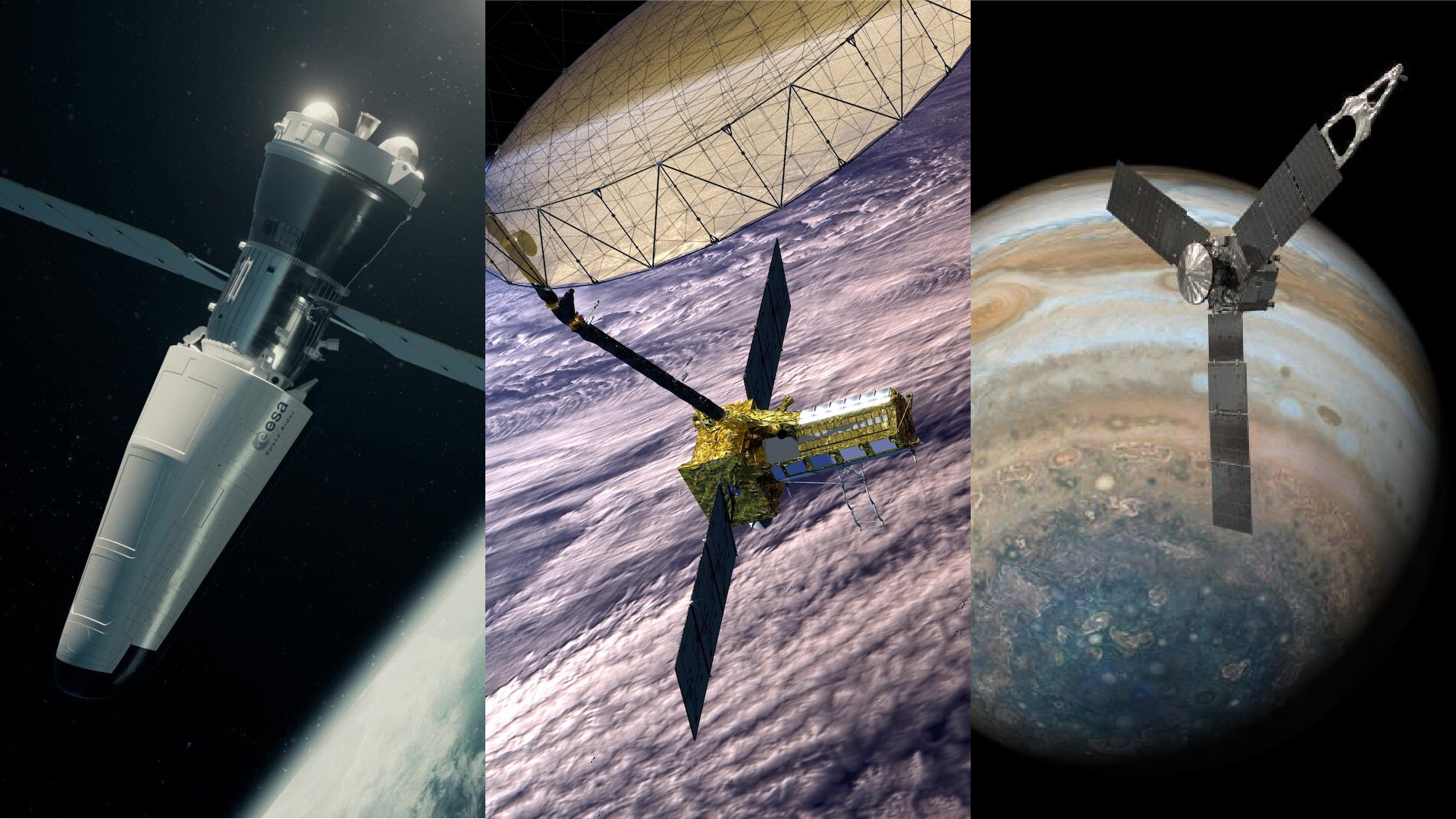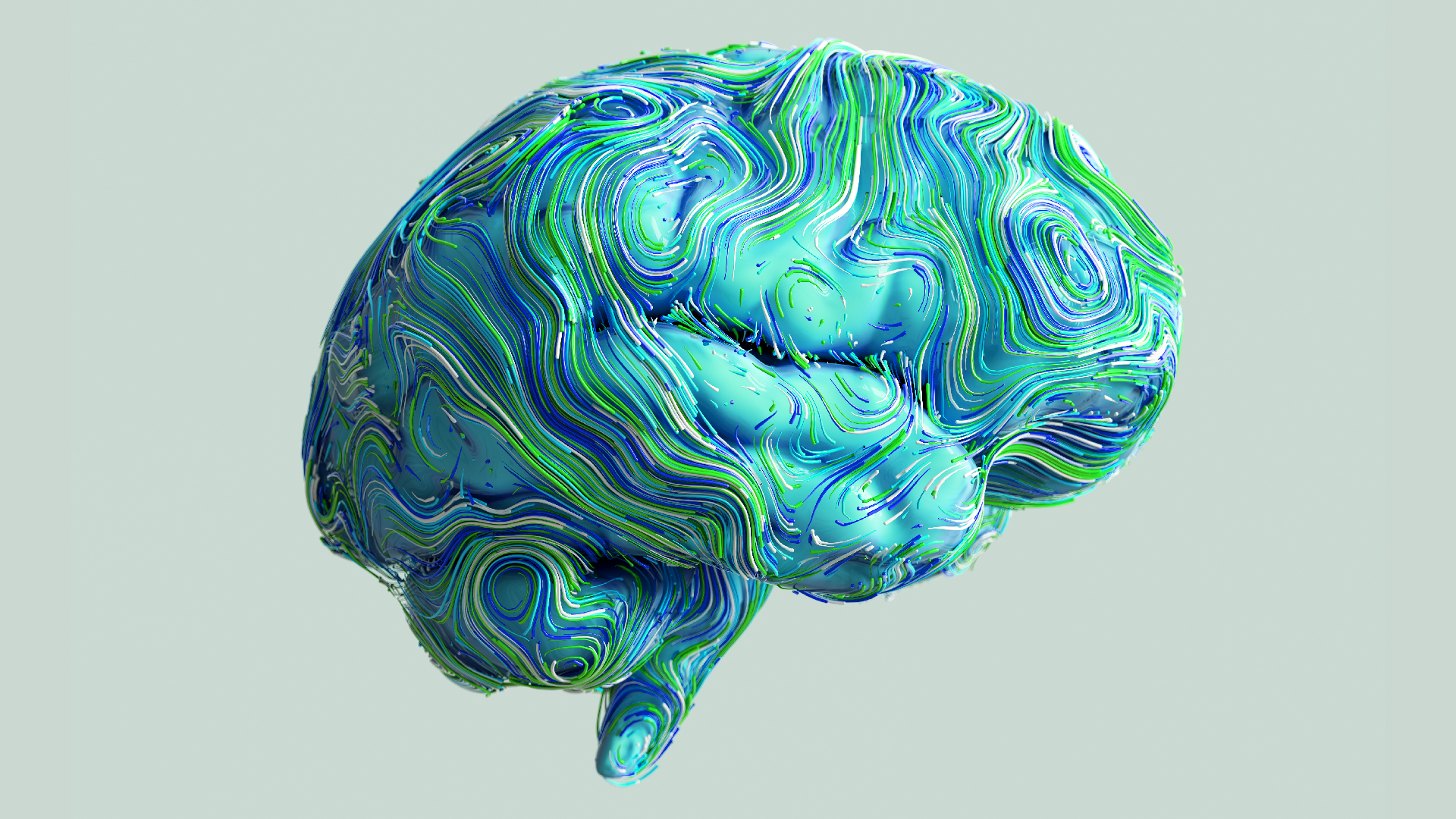In Photos: Ancient Cemetery Near Giza Pyramids
Giza cemetery
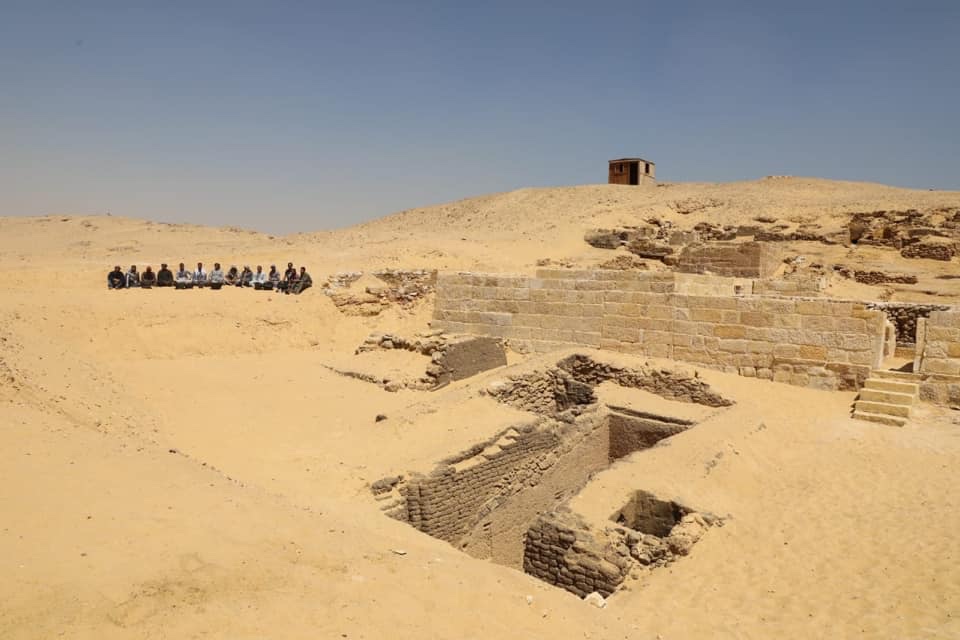
Archaeologists working southeast of the Giza Pyramids have discovered part of a cemetery that dates back about 4,500 years. It contains a number of tombs and burials, the oldest of which dates to shortly after the Giza Pyramids were completed. [Read more about the ancient Egypt discovery]
Mummies
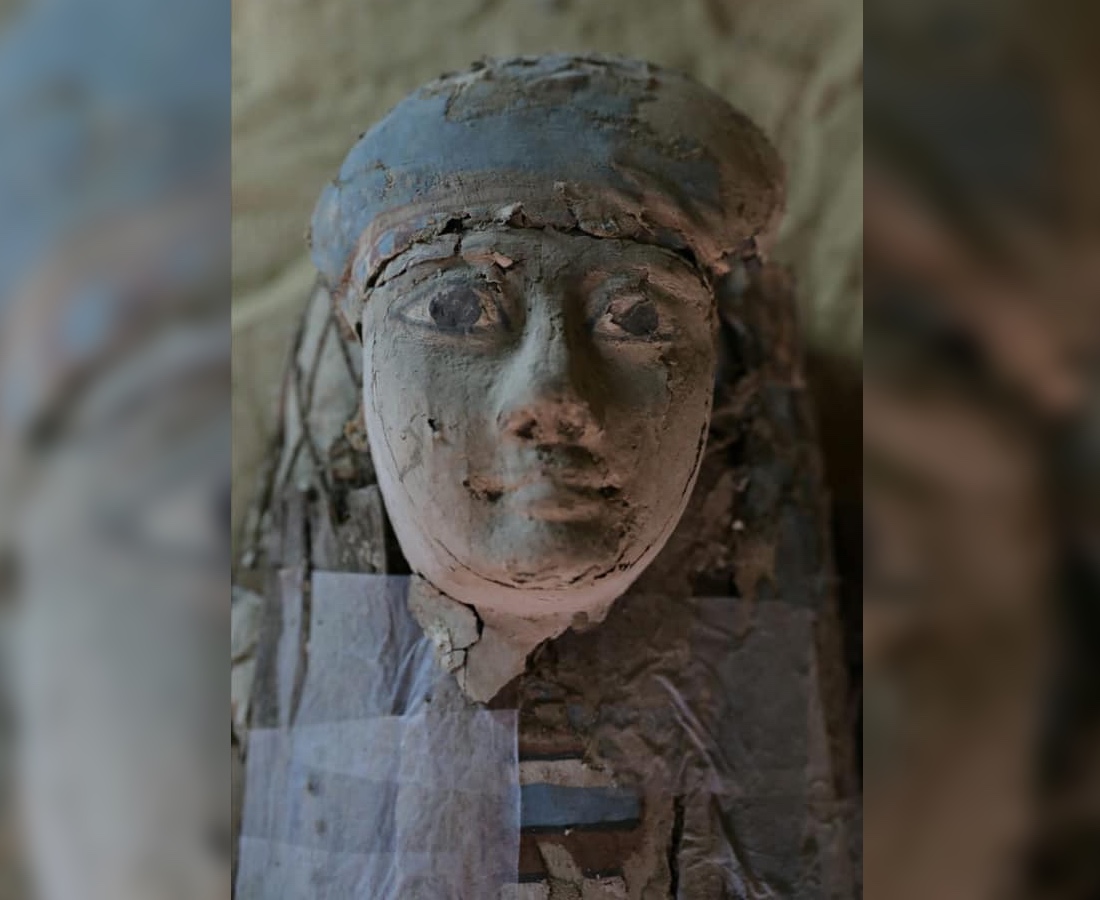
A number of sarcophagi holding the remains of mummies were found inside the tombs. The sarcophagus shown in this picture may actually date back around 2,600 years, to a time when the cemetery was re-used.
Nestled sarcophagi
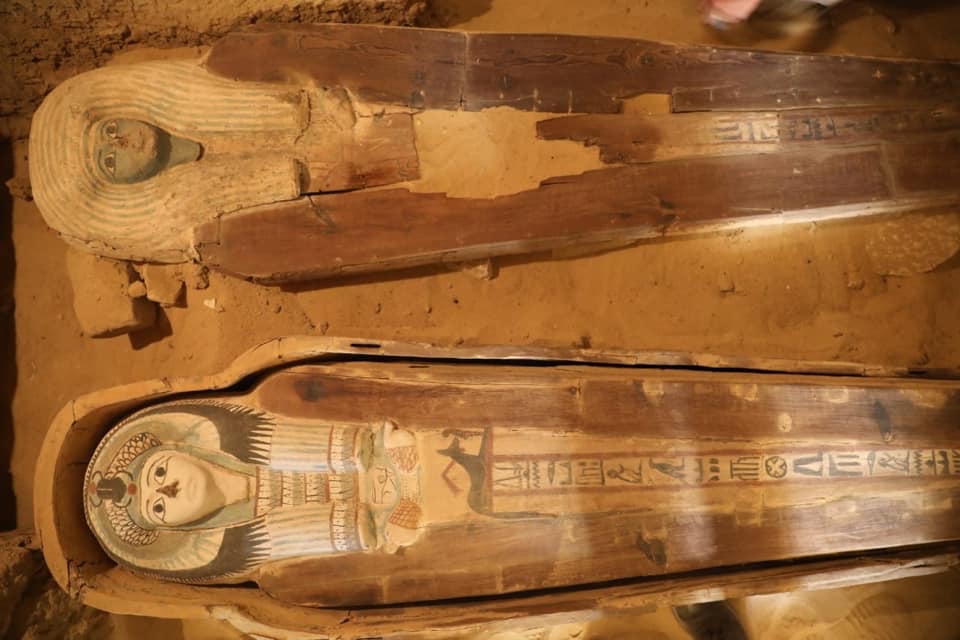
Sometimes the sarcophagi were nested together. In this photo, the outer sarcophagus has been opened to reveal another sarcophagus within.
Nwi and Behnui-Ka
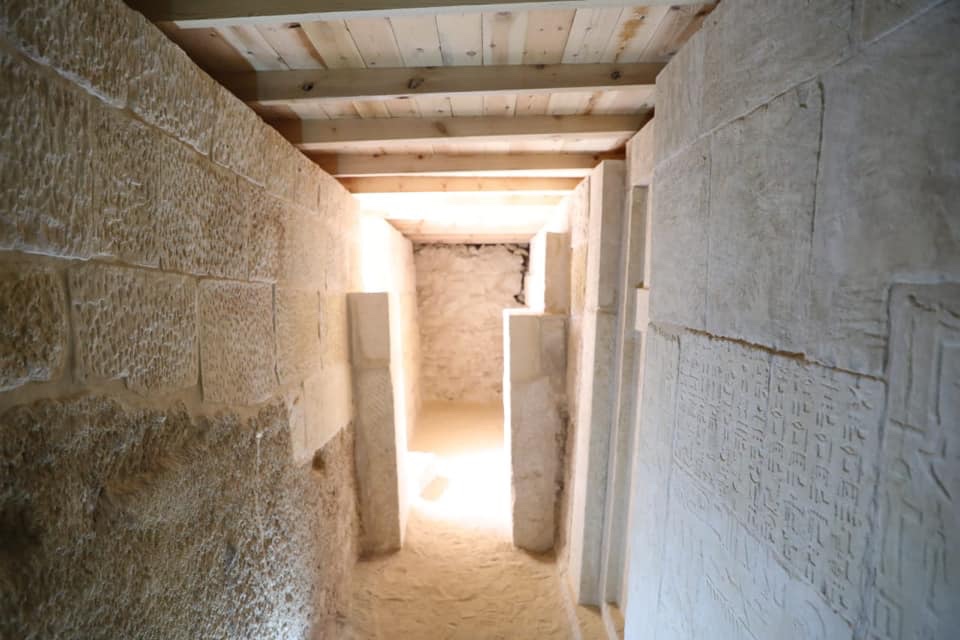
One of the largest tombs contains the remains of two men, one named Nwi and another named Behnui-Ka. Both men held numerous titles and a sizable tomb (part of which is shown here) was constructed for them.
Men in a sarcophagi
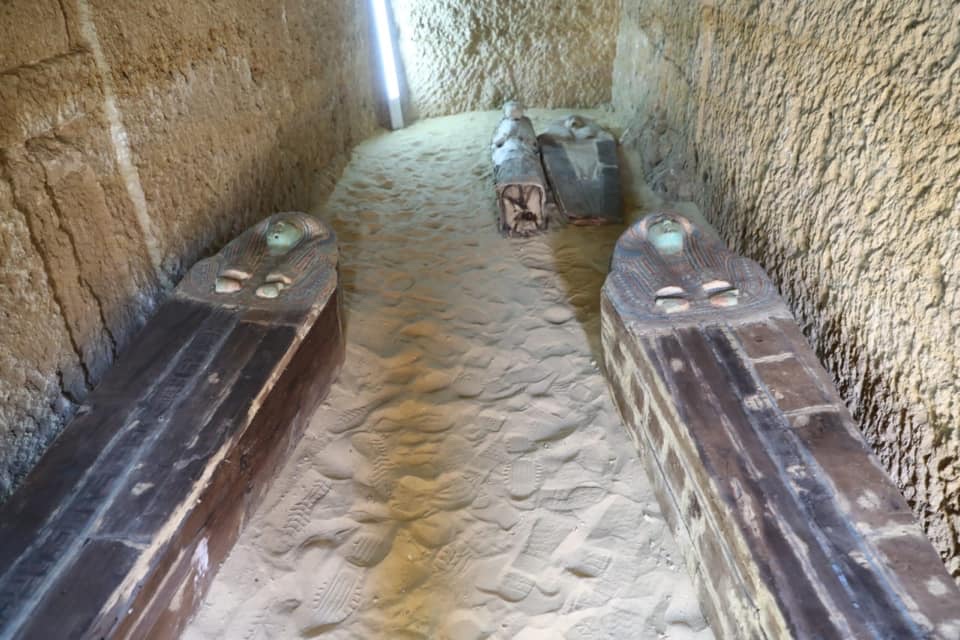
The sarcophagi of Behnui-Ka and Nwi are seen in this picture. The two men lived about 4,500 years ago, not long after the Giza Pyramids were constructed.
Cleaning the sarcophagi
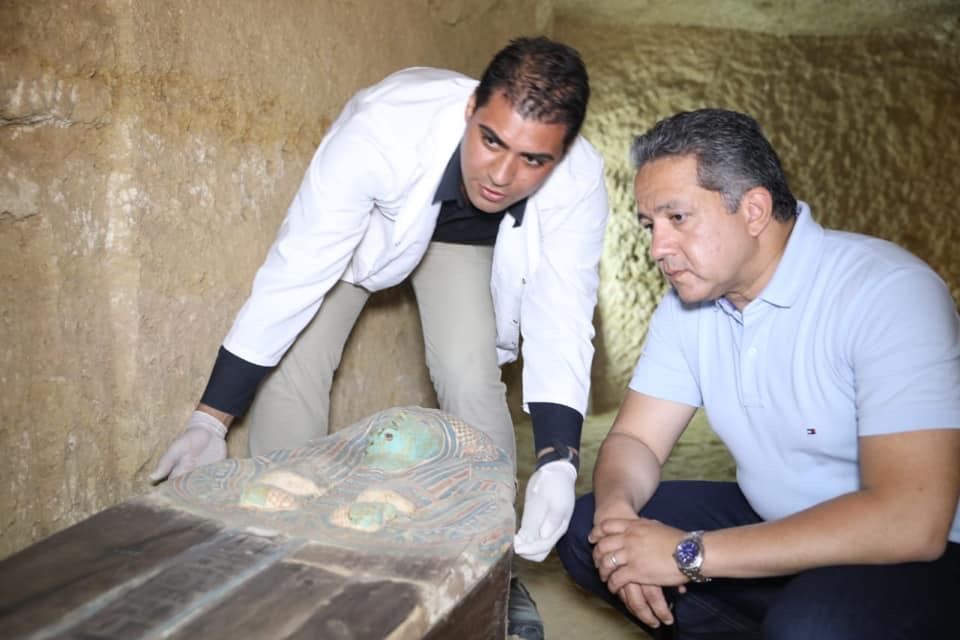
Archaeologists and conservators had to be careful when cleaning and examining the 4,500-year-old sarcophagi.
Ceramic masks
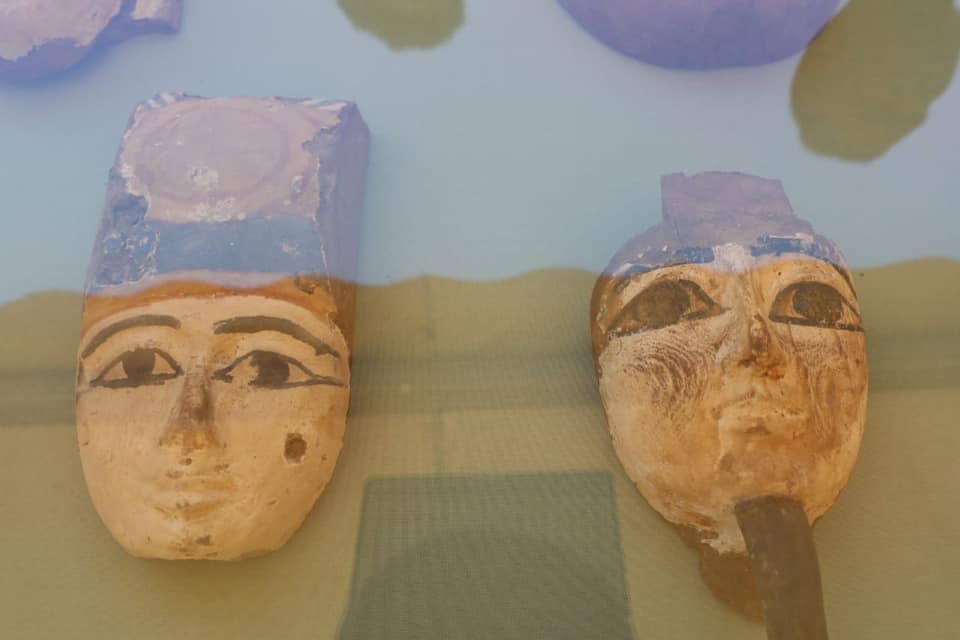
Numerous artifacts were found in the cemetery, including wooden and ceramic masks, examples of which are seen in this photo.
Human statue
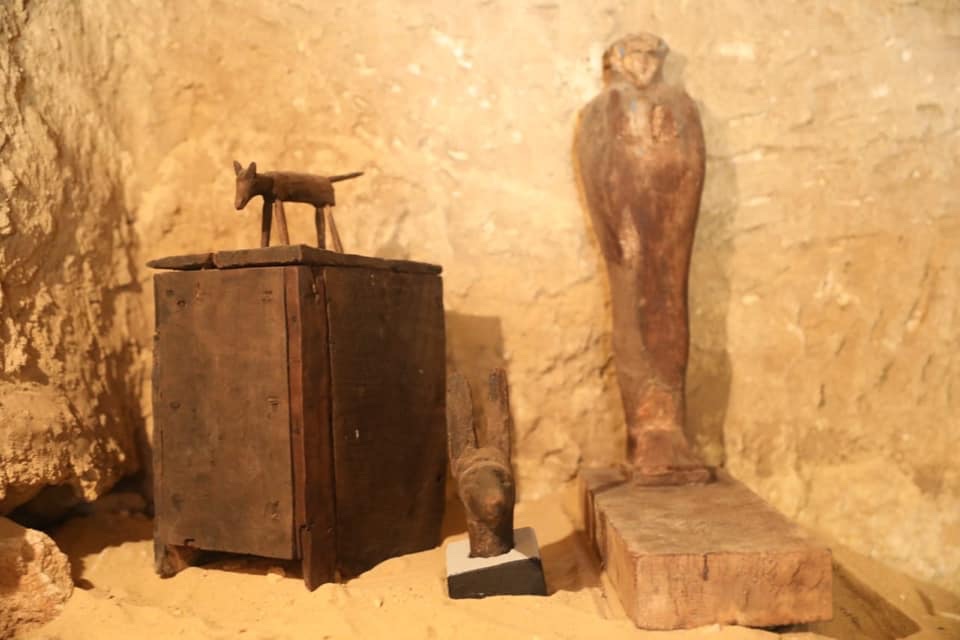
A number of statues and sculptures were also found in the cemetery. The statue in the shape of a human, seen in this photo, may show either Behnui-Ka or Nwi.
Stone inscriptions
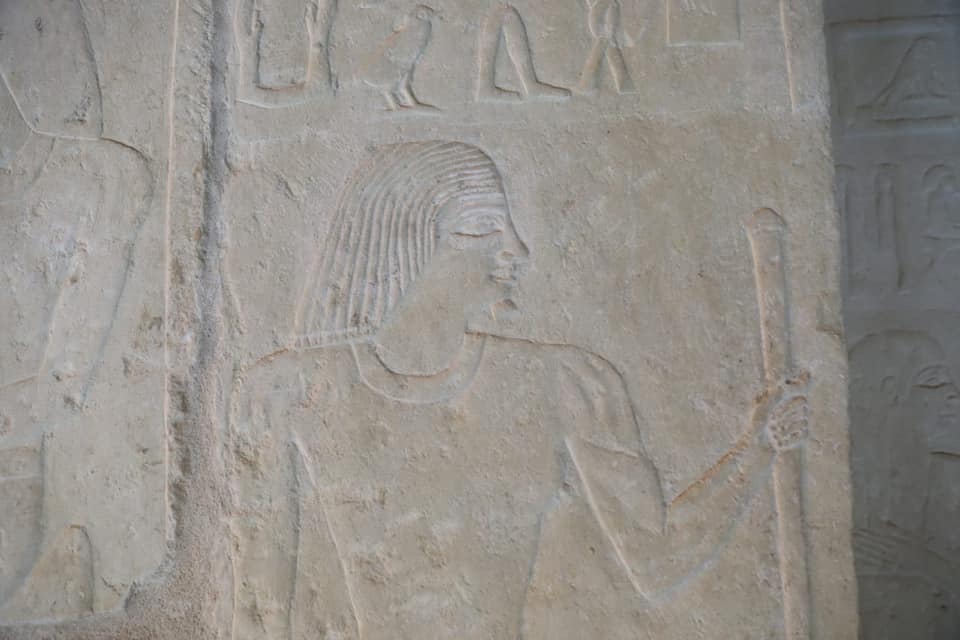
Stone engravings showing images of people and hieroglyphic inscriptions were also found in the tomb. The inscriptions revealed information about Behnui-Ka and Nwi, such as their titles.
Cemetery discoveries
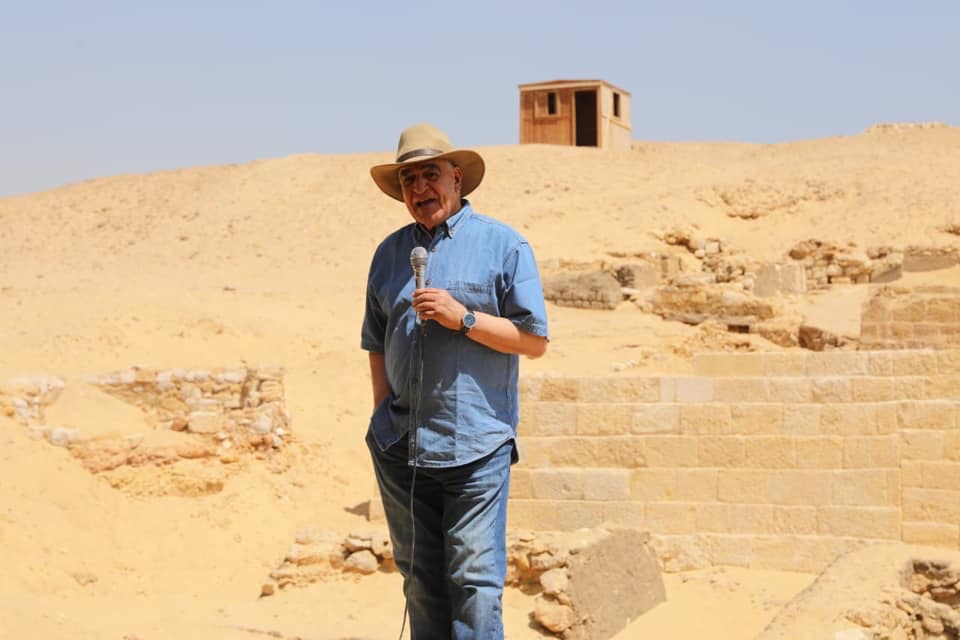
Zahi Hawass, Egypt's former minister of antiquities, noted that the new cemetery is located beside a cemetery that holds the graves of the builders of the Giza Pyramids. Research at Giza continues, with more discoveries likely to be made in the future.
Sign up for the Live Science daily newsletter now
Get the world’s most fascinating discoveries delivered straight to your inbox.

Owen Jarus is a regular contributor to Live Science who writes about archaeology and humans' past. He has also written for The Independent (UK), The Canadian Press (CP) and The Associated Press (AP), among others. Owen has a bachelor of arts degree from the University of Toronto and a journalism degree from Ryerson University.






